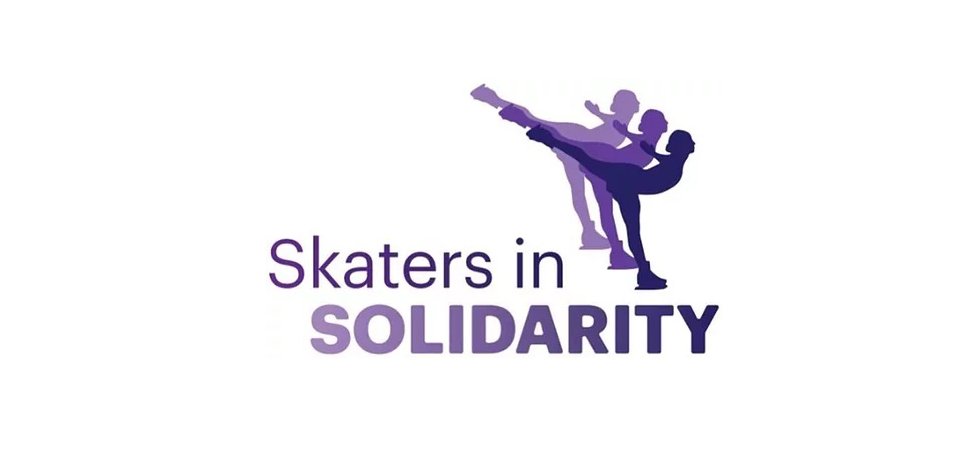By Jillian L Martinez
Last year during coronavirus lockdowns and racial justice protests, a group of alumni from the Chicago Jazz synchronized skating teams reconnected and reflected over the murder of George Floyd by a police officer and the inequities in historically underrepresented communities. In an effort to make change and confront systems of oppression, the group founded Skaters in Solidarity NFP.
“With the death of George Floyd and the rise of Black Lives Matter, we saw a lot of skaters posting about the disparities in the sport such as the color of tights, the colors of dresses and how people of color were treated at the rink,” Kristin D’Antonio, a founding member of Skaters in Solidarity, said. “We came together with the goal of making sure that we bring light to these issues and try to help how we can.”
As Skaters in Solidarity began, D’Antonio and her peers looked to organizations dedicated to BIPOC and underrepresented skaters like Aurora Tights, Figure Skating in Harlem (FSH) and Figure Skating in Detroit (FSD) for guidance. Figure Skating in Detroit became the most feasible partner due to geographical proximity, with many of the Chicago Jazz alumni residing in the Great Lakes area.
“They [FSD] are in this area where there are high-level, competitive synchro teams, but they haven’t really engaged with them as much,” Laura Paprocki, another founding member of Skaters in Solidarity, said. “We thought our experiences [as former Team USA and collegiate synchronized skaters] could be applicable and provide mentorship.”
Under the umbrella of Figure Skating in Harlem, FSD represents the only organization for girls of color that combines the power of education with access to the artistic discipline of figure skating to build champions in life. The group serves more than 300 girls, ages 6 to 15, and provides figure skating instruction, academic support, STEM classes, leadership training, career development and financial literacy.
In May 2021, FSD hosted its spring “Celebration of Youth” week event to honor members and raise funds for the organization. During the celebration, Skaters in Solidarity provided a mentorship webinar for the FSD girls to virtually present on SMART (Specific, Measurable, Achievable, Relevant, Time Bound) goals, time management, mental health, international skating and collegiate and career opportunities.
“We worked to come up with topics that were important when we were skating and that were transferable to school, careers and the next steps for these girls,” D’Antonio said.
D’Antonio worked with fellow Skaters in Solidarity members Eri Lee, Sophia Johnston and Olivia Johnston to address the older girls at the event.
“Even though skating can be difficult when you’re growing up, we wanted these girls to know it’s worth it. These skills and experiences prepare you for the real world,” Paprocki said.
Paprocki collaborated with Bailey Styzinski, Mady Johnson and Anna Higgins on a presentation targeted toward younger skaters.
One message Skaters in Solidarity presenters emphasized to both FSD groups comes from U.S. Figure Skating’s Get Up® campaign, comparing the idea of falling down and getting back up to disappointments with school exams and job interviews. It is important for young girls to know that mistakes happen and recovery matters most, according to D’Antonio and Paprocki.
Outside of their partnership with FSD, Skaters in Solidarity has worked with Grace to Glory (a minority and woman-owned greeting card company) to highlight each other’s work and fundraise for underrepresented skaters. They have also created an anti-racist book club and amplified diverse voices and issues through their Instagram page.
As Skaters in Solidarity grows, the group will build a website and donation link for supporters to contribute. Other projects D’Antonio and Paprocki would like to see become a reality include volunteering, tutoring and hosting an equipment drive to collect old skates for FSD.
“There are so many ways you can be politically active and engaged and try to make the world more equitable,” Paprocki said. “That's our main goal — of course with skating at the forefront.”
D’Antonio and Paprocki emphasized the importance of educating themselves, as well as their members through media and dialogue as they create active and sustainable allyship. Using this education and pairing it with BIPOC (Black, Indigenous and People of Color) skaters’ testimonies and personal experiences, Skaters in Solidarity hopes it can push the figure skating community toward being more accessible, inclusive and equitable.
“The skating community is small, but the synchro community is even smaller,” D’Antonio said. “Even though we all started from [Chicago Jazz], each of us has such a wide network that we're hoping to really be able to bring our synchro community together to help support Figure Skating in Detroit, Figure Skating and Harlem, Diversity in Action … and making sure that we can build them up and bring awareness in the synchro community, too.”
To learn more, follow Skaters in Solidarity on Instagram @skatersinsolidarity.


